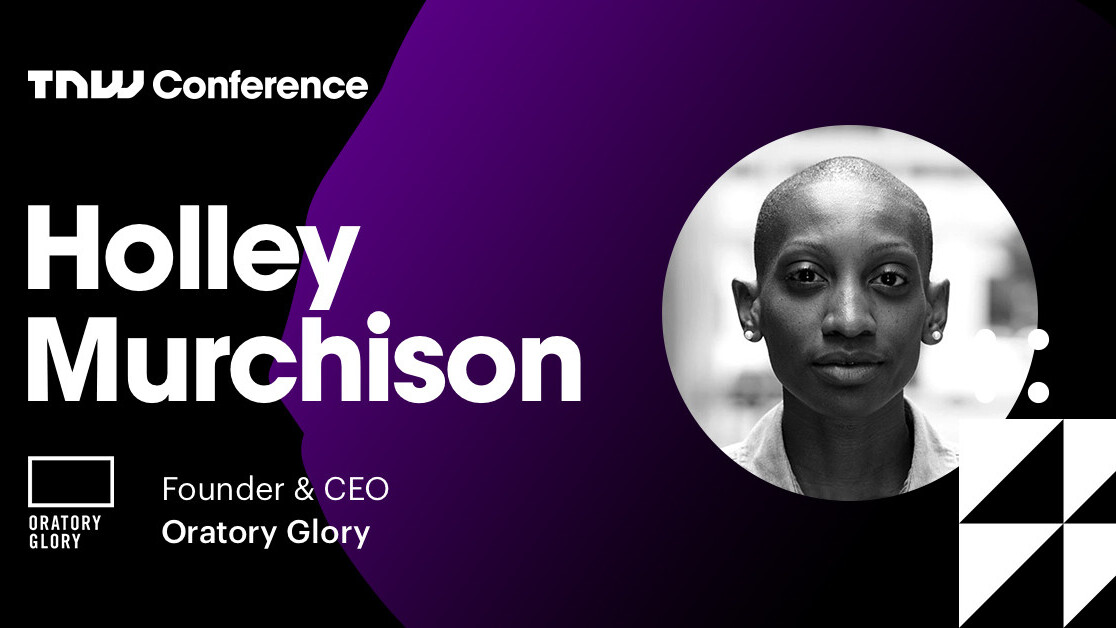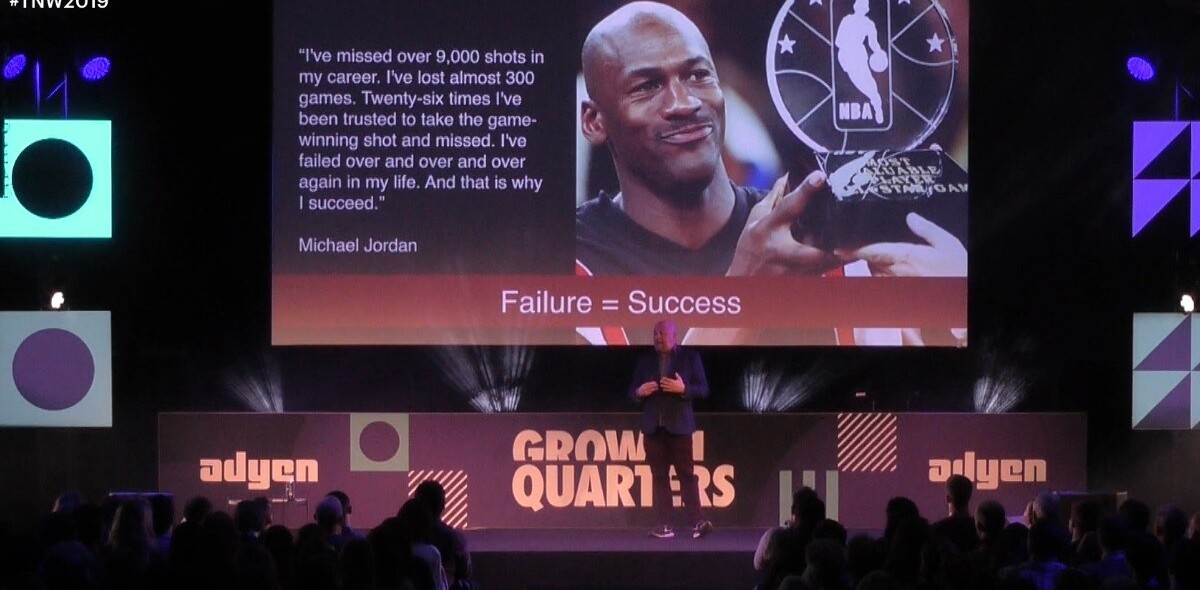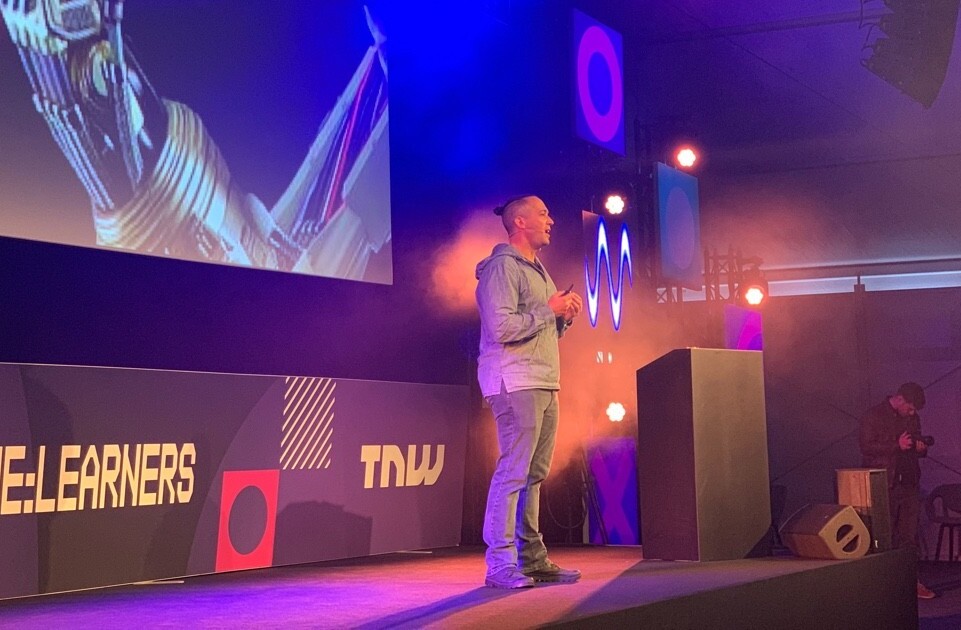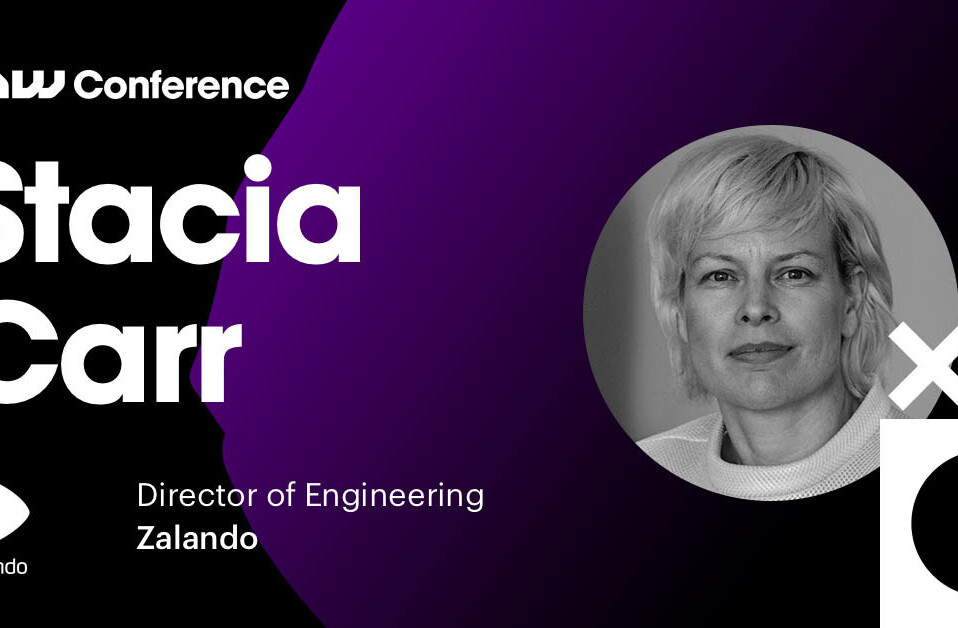
As the world of work is dramatically changing, we face new challenges we’re often not equipped for. The global workforce is more educated than ever, but professionals lack the soft skills they need to thrive in the fast-paced career environment.
Holley Murchison is on a mission to change that. After years of working as a communication consultant and coach, she founded Oratory Glory – a global human development agency devoted to helping professionals develop the skills they need to thrive in their careers. Ahead of TNW Conference, where she’ll moderate the Future of Work track, Murchison told me about the biggest challenges facing workplaces and how we can overcome them.
How did Oratory Glory begin? How did the company name come about?
Seven years ago, I was working as a communications consultant. I was facilitating public speaking workshops for companies and creative communities, and coaching professionals to be better communicators. I started Oratory Glory a few years after, to dive deeper into that work. Early on, the goal was to help people within companies and educational institutions navigate the nuances of interpersonal and intrapersonal communication, humanize the way they engaged with others, strengthen their relationships, and improve their overall performance.
What I noticed along the way was that communication was just one piece of the equation. In addition to those barriers, people weren’t reaching their full potential because of learning edges around self-development, leadership, creative process, and ideation. So we shifted the model from a communications agency to become a human development and education production agency. Today, we help emerging leaders develop the confidence, skills, and attitude to lead fulfilling lives doing what they love and executing ideas that bring sociocultural change.
Our tagline is: “Own your voice, leave your mark.” The name Oratory Glory came from the intention of being unapologetically vocal about effecting positive change in the world.
What are the biggest issues facing workplaces today, and how can we overcome them?
With the way the world of work is changing — particularly with the increase of outsourcing to agencies and freelancers — one of the most urgent issues that comes to mind is the absence of learning and development strategy. I believe every organization should have a clear, measurable plan across departments and teams that prioritizes supporting employees, contractors, and collaborators in becoming the best versions of themselves.
This investment in the “whole” person versus the person hired to perform in a specific role, better equips people to show up as thoughtful, emotionally intelligent human beings. And by putting people first, you can more seamlessly foster a culture of self-improvement, innovation, and impact that inspires solutions for a lot of the other issues workplaces face: equitable compensation and wage gaps, harassment prevention, gender inclusivity, substance abuse, security, and more human-centered practices around paid maternity/paternity leave, and bereavement leave.
What do you think of the latest trends we’ve seen in the workplace, like open-plan offices and the option to work from home? Do you think this promotes communication and collaboration?
I think it all depends on the culture and values of a company. These trends can be successfully implemented with a deep understanding of who your employees are. For example, if you know you have a team full of introverted people who are at their best when they have privacy and quiet, reflective time, an open-plan office may not be the best fit.
I think it’s useful to be knowledgeable about trends for research and inspirational purposes but in the end, it’s important to design around the needs of the company culture you’re seeking to create.
Having worked within both large and small teams throughout my career, I appreciate workplaces and practices that are designed to promote and encourage transparency, productivity, reflection, play, experimentation, compassion, collaboration, individuality, freedom, interdependence, and ownership of your experience.
You created the Tell Me About Yourself (TMAY) method. How did you develop it, and how have you seen it help individuals and businesses?
At Oratory Glory, I started to notice a pattern through our collaborations with colleges and universities, as well as corporate and non-profit organizations. From students to entrepreneurs, to C-suite executives, people, and teams we worked with struggled to confidently answer that “Tell me about yourself” question. And it often put limitations on how far their work could go. My partner and I talk a lot about self-actualization, and what it takes for people to realize and fulfill their talents and potentialities. Through witnessing that pattern, we agreed that empowered communication is one of the first touch points for that journey.
Given my background in instructional design and facilitation, I developed and iterated the TMAY method through three years of one-on-one coaching sessions and communal learning labs across 15 countries. The goal was to create a simple framework that would teach multidisciplinary professionals how to authentically discuss their craft, foster genuine connections, and confidently articulate their purpose and value in high stakes conversations and interactions.
Since I developed the method in 2014, I’ve seen it help individuals hone their creative confidence, articulate career transitions with ease, pitch solutions more confidently, and reimagine their personal narrative. Within businesses, it’s helped to transform external storytelling to communicate company missions and visions through a more human lens, strengthen leaders’ ability to engage and motivate teams, empower employees at all levels to champion and execute ideas, and deepen connection and synergy across teams to improve their collective performance.
Oratory Glory’s “Be Heard” course helps give the next generation the tools they need for the future. If you had to choose one piece of wisdom from the course, what would it be?
Stay curious and keep investing in the things that pique your curiosity. They’ll likely lead to developing a set of skills, talents, relationships, and wisdom that allow you to design and redefine a lifelong, purpose-driven career beyond your wildest imagination.
Curious how to handle the challenges of the modern workplace? Don’t miss Holley Murchison moderate the Future of Work track at TNW Conference.
Get the TNW newsletter
Get the most important tech news in your inbox each week.





